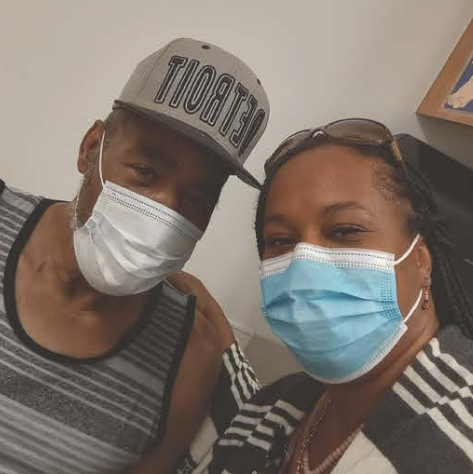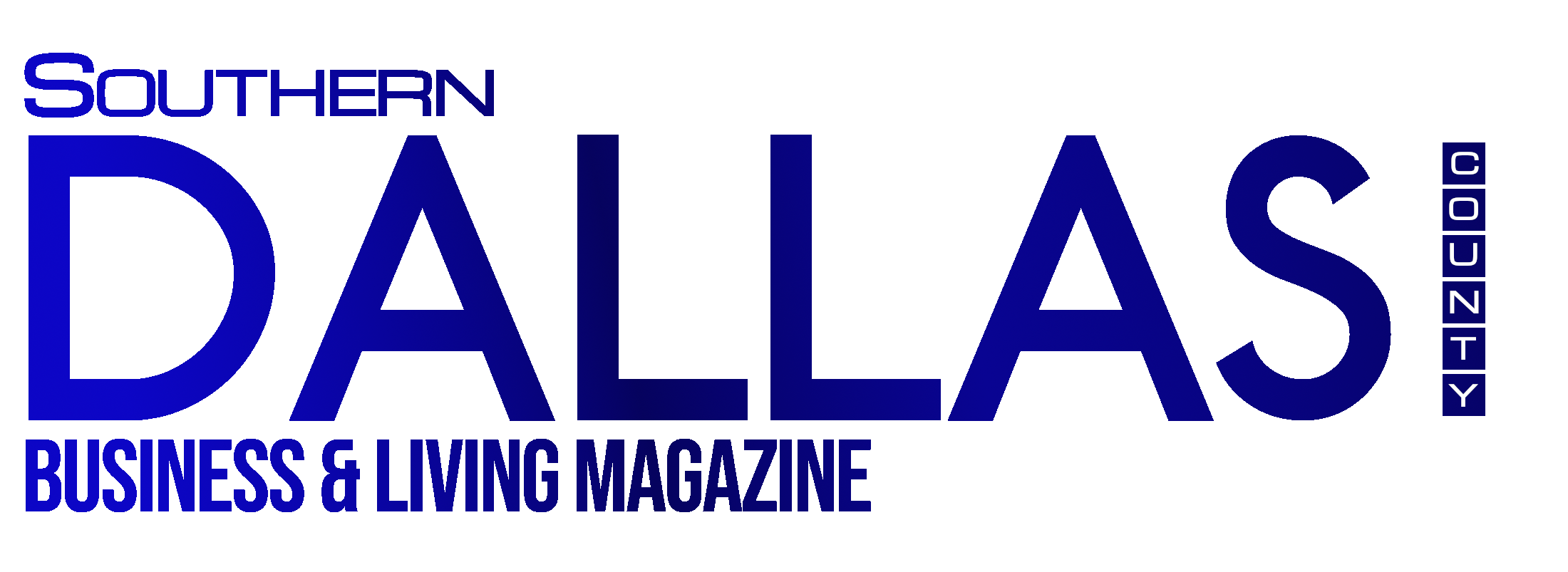When Camille Myers’ father became partially paralyzed after suffering a stroke in December 2022, it was an all too familiar struggle of seeing a loved one suffer from the effects of hypertension. In 2005, Myers lost her grandmother, the woman who raised her, to a stroke, then later lost her uncle to a heart attack in 2015. In addition, her father, grandmother and uncle all struggled with high blood pressure.
Myers, Parkland Health Foundation Donor Relations Program Manager, said the experience is a common one in the Black community.
“I knew people from high school who passed away from heart attacks in their late 30s and 40s. Everyone would be shocked at their sudden death, but in the back of my mind, I’ve wondered if they suffered from hypertension. When I see the statistics, it makes it feel even more real for me,” Myers said.
Those statistics include the findings of the 2022 Dallas County Community Health Needs Assessment (CHNA) showing that Black Dallas County residents have the highest rates of heart disease-related death of all races and ethnic groups.
“In our family and often in our community, high blood pressure is interpreted as being normal. It’s viewed as something that cannot be avoided, managed and controlled,” Myers said. The disconnect in understanding the relationship between hypertension and heart health became even more apparent to Camille when she herself was diagnosed with hypertension a few years ago.
“Even though I discussed treatment with my doctor and was aware of hypertension, there was an educational component that’s missing. Sure, I understood that I should check my pressure, record my numbers, and take my medication, but I didn’t fully understand what was going on inside my body,” she said.
It wasn’t until Myers saw a healthcare provider who helped her understand exactly what was happening when her blood pressure was up and how that causes damage, that she could see why management of her hypertension was so important to her heart health and overall well-being.
“Multiple safe, affordable medications are available to treat hypertension, but many people may need more than one medication to achieve blood pressure control. Fortunately, with proper treatment of high blood pressure, we can dramatically lower someone’s risk of heart attack, stroke and kidney disease,” said Ann Marie Navar, MD, Cardiologist at Parkland Health and Associate Professor of Cardiology at UT Southwestern Medical Center.
When someone’s blood pressure is high, it can cause damage to the arteries in the brain, causing strokes, or damage to the heart arteries, causing heart attacks. Your heart can also become overworked and enlarged from this pressure, leading to heart failure. The chain reaction of high blood pressure doesn’t stop at your brain and heart either; high blood pressure can also cause vision loss, kidney failure and sexual dysfunction.
When her pressure is high, Myers visualizes the force of her blood on her artery walls, and “this is what connected the dots for me.” She added, “When my friends or family members say their pressure is above 190, it’s just a number to them. There’s no connection to what that means and what’s going on in their bodies at that moment. I want people to understand it’s more than just a headache or dizziness, there’s something bigger going on inside.”
According to Dr. Navar, some people feel symptoms with high blood pressure, which can include a variety of symptoms such as headaches, feeling dizzy, or vision changes, among others. However, many people with high blood pressure have no symptoms at all. Even those without symptoms are at risk for the long-term complications of hypertension and should be on treatment. For this reason, Dr. Navar recommends all adults have their blood pressure checked regularly by their doctor. Some may also be recommended to measure their blood pressure at home.
“I know people who take their medicine only when they have symptoms. One of my family members stopped taking their medication for years because they didn’t like how it made them feel. When I started medication, I had side effects and had to speak with my doctor, and we found one that works,” she said.
While Myers understood the importance of lifestyle change, it was finding a treatment approach that worked for her and deeply understanding how her elevated blood pressure was causing long-term harm that gave her the fuel she needed to start making changes in her life. “Today, I am being more intentional about my diet. I’ve lost a few pounds, and I’m exercising regularly,” she said. “I didn’t feel confident enough to go to a gym. That was a big hindrance for me to exercise.”
For each 2.2 lbs. lost, your systolic blood pressure (top number) lowers by 1 mmHg and 90-150 minutes of aerobic exercise each week can reduce your systolic pressure another 2-8 mmHg. If you aren’t comfortable with going to the gym, try something like Myers’ approach and do at-home workouts on an app or YouTube, go for a walk with a friend, go dancing, or play soccer at the park with your family.
“After losing two family members and becoming a primary caretaker for my dad, I want people, specifically Black patients and Black families, to understand the effects that hypertension have on our bodies and just how important this is to our overall health,” she said.



